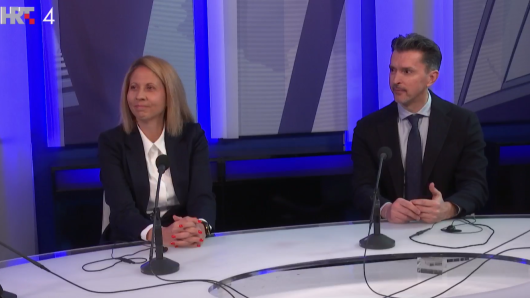Croatia may not achieve its targeted 0.8 percent growth this year as it struggles to halt an economic "free fall" ahead of its expected entry into the European Union in 2013, Economy Minister Radimir Cacic told Reuters on Thursday.
Cacic said the growth target, after three years of recession and stagnation, was "very ambitious".
"It may prove difficult to achieve, the whole of Europe is poised for a contraction," Cacic said, adding, "It is important to keep growth around zero but cutting spending and boosting growth at the same time is not easy."
Croatia's public debt soared to 64 percent of gross domestic product from 42 percent during the previous government's second consecutive term in office in 2008-2011, Cacic said. At the same time, high public spending remained unchanged while state investments were slashed to zero, said Reuters.
"Our task this year is to change this embarrassing picture and halt the dramatic free fall. If we stay on our feet, keep the GDP growth around zero ... we could grow two percent next year and 3 or 4 percent in 2014 and 2015," Cacic was quoted as saying.
Most analysts forecast a contraction of up to two percent this year. Croatia plans energy and transport investments totalling some 1.6 billion euros this year as it seeks to avert a recession before joining the EU in July 2013, but at the same time it must cut the budget deficit to preserve its credit rating, said Reuters.
Cacic said the government would not invest directly. Some two-thirds of investments will come from public companies, which will turn to international lenders and EU development funds. Some 400 million euros should come from the private sector.
Cacic acknowledged that "not a single project is ready to be implemented yet" but preparatory work was under way.
"Once the projects get going, we will have an investment momentum that will keep the GDP growing for a few years," he said.
In another effort to boost growth, the government has taken steps to improve a business climate stifled by high taxes and labour costs, red tape and perceived widespread corruption, Cacic said.
"We have abolished tax on reinvested profits, cut public health and several other contributions for employers. State and public companies will have to publish tenders in real time on the Internet and make public the lists of all contractors and subcontractors. That's a good start," he added.




































